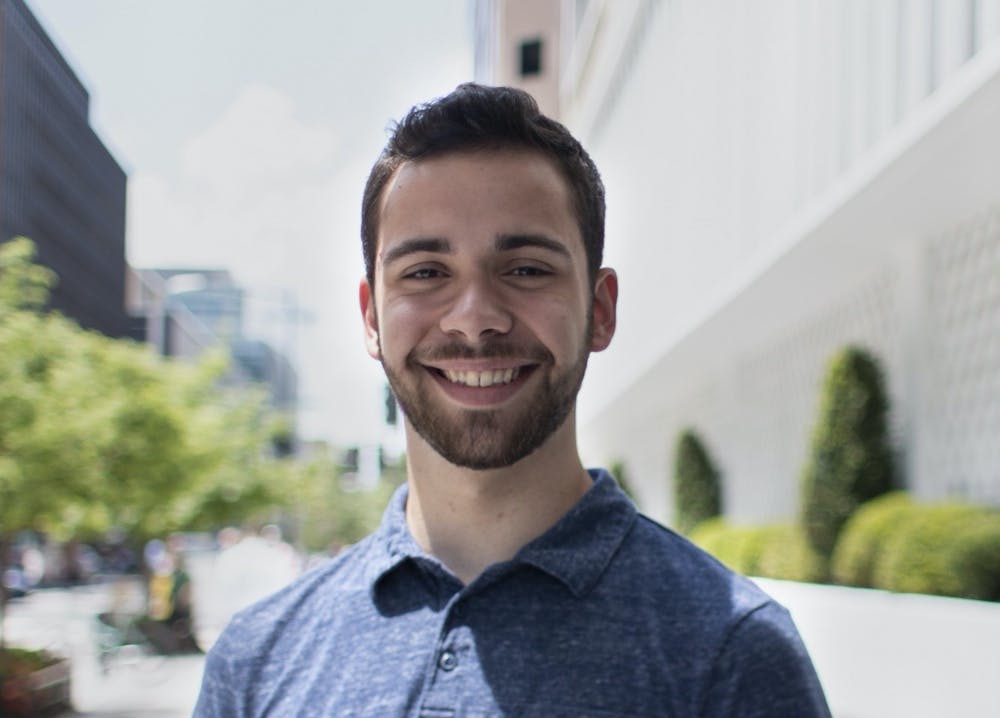Last summer, the American University community reckoned with the dangers posed by fraternities on campus. Multiple victims of sexual assault, racism and other forms of misconduct spoke out on social media. Record numbers of Greek life members disaffiliated, whole chapters disappeared and our own Student Government president resigned citing mental health concerns and allegations against his fraternity. More and more students spoke up, and those of us who had not yet realized the severity of the problem came to see just how widespread racism and sexual assault are in fraternities. Then, we moved on with our summers. The pandemic and the election continued, and the urgent story surrounding Greek life lost steam. Now, fraternities are recruiting again — and they may be more dangerous than ever.
What I saw: All talk, no change. Now the problem may be worse.
Survivors bravely started an overdue reckoning on campus. They showed us the problematic reality through posts on @blackatamericanuniversity and @exposingauabusers, as well as through other personal stories. But it’s not the job of survivors to fix this problem alone. It’s on all of us, especially ex-Greeks who have been complicit in this system. In my experience, those who left were typically the loudest and most insistent advocates for safer and more inclusive practices. Now that they’ve disaffiliated, others are left to fill leadership roles. I’ve seen the conversations that AU frats have about reform. They don’t achieve nearly enough change in part because many members proudly cling to traditional practices. With so many advocates for change now out of the picture, how can we have any faith that frats will make themselves safe?
Prospective new fraternity members, especially freshmen who were not around when these allegations initially arose, should know that the frats they’re thinking of joining are now even less organized, even less diverse and even less willing to make necessary changes.
In the time I was involved with frats, I saw a culture that was ill-equipped to handle serious topics and a mentality that viewed abusers as bad apples. Crisis-management conversations within social Greek life are too often centered around legal liability and public relations — not what the right thing to do is. Prospective members, and sometimes members of leadership, are often not told about ongoing allegations. Naturally, the secrecy and the lack of true self-reflection never led to change.
I also witnessed the disregard for members of color and LGBTQ+ members. When faced with any real criticism, AU frats get incredibly defensive and wind up dismissing very valid concerns that come from people with unique and essential viewpoints. Within Zeta Psi, I saw these members tokenized and held up as examples of the chapter’s progressiveness, even though many refused to work with them to actually address their needs. Their ideas and experiences were consistently dismissed, outvoted and ignored.
What did I see in response to all this? Chapter leaders across campus prioritizing reputation above all else. Lots of decent words, but not nearly enough actions.
What I learned: It’s an inherently oppressive system.
I became disillusioned with Greek life precisely because of this lack of concrete action. The allegations from this summer and frats’ reactions to them were the final straw.
Greek life is antiquated, gender-restrictive, secretive and dangerous. Just because Greek life at AU strives to do better does not change this. In fact, the reason efforts to change the system have failed is because, when it comes to frats, sexism, racism, homophobia and more are the system. All of the perceived benefits of Greek life can be found elsewhere. Whatever frats have to offer — social connection, professional development, etc. — isn’t worth another sexual assault, another racist incident or another 9-1-1 call.
When students eventually return to campus, AU’s culture and social scene will need to recalibrate no matter what. Now is the time to think honestly and creatively about the kind of community we want to be in. Ending Greek life will not solve all of these problems, but it will eliminate a space where they frequently and easily occur.
The community found in Greek life can be found in other organizations. If you don’t see an organization you like, you can start one yourself. Greek life uses the insecurity that we won’t find community in order to get many of us on the hook early on in our college experience. Don’t let it.
Our society as a whole is reckoning with so many systems of oppression right now. Greek life was built off of those very systems. We tried and failed to make it safe. Now it’s time to put pride aside and listen to the victims who are trying to educate us. An inherently racist, sexist, classist, ableist, homophobic and transphobic system cannot be reformed. It’s time to chart a new course.
Adam Frank is a senior in the School of Public Affairs. His opinions are his own and do not necessarily reflect the views of The Eagle and its staff.





